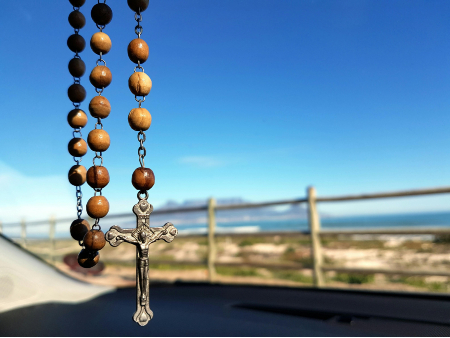We ask you, humbly: don't scroll away.
Hi readers, it seems you use Catholic Online a lot; that's great! It's a little awkward to ask, but we need your help. If you have already donated, we sincerely thank you. We're not salespeople, but we depend on donations averaging $14.76 and fewer than 1% of readers give. If you donate just $5.00, the price of your coffee, Catholic Online School could keep thriving. Thank you.Help Now >
Genetically modified Monsanto frankenwheat found on Oregon farm grows controversy
FREE Catholic Classes
A rogue sample of genetically modified wheat that was identified growing on an Oregon farm last April has disrupted global wheat markets as officials scramble to find out where it came from. Buyers of U.S. wheat are already declining purchases.
We ask you, humbly: don't scroll away.
Hi readers, it seems you use Catholic Online a lot; that's great! It's a little awkward to ask, but we need your help. If you have already donated, we sincerely thank you. We're not salespeople, but we depend on donations averaging $14.76 and fewer than 1% of readers give. If you donate just $5.00, the price of your coffee, Catholic Online School could keep thriving. Thank you.Help Now >
LOS ANGELES, CA (Catholic Online) - An official with the U.S. Department of Agriculture told the media that investigators are still trying to find how the sample ended up on a farm in Oregon. Many potential buyers have halted U.S. wheat purchases and several countries have increased inspections of U.S. wheat, although none have yet banned the product.
The European Union also announced it would increase tests on imports from the U.S. to check for contamination.
There are concerns for contamination of unmodified wheat supplies.
The wheat identified by the USDA, is a genetically modified version designed to be resistant to herbicides. Monsanto produces the variety, but never put it into production. Which raises the question of how it got planted on an Oregon farm.
Although there are no known harmful effects of the wheat should it be consumed by humans, the strain is untested in the wild and could contaminate neighboring strains with unknown consequences.
The genetically modified strain could also develop into an herbicide resistant weed if it starts growing on places where it isn't desired.
For now, USDA inspectors are testing the grain to determine its exact origin and if it could possibly be part of a larger problem. The USDA also emphasizes that there are no known health risks from consuming the wheat.
The wheat was widely tested when it was first developed and Monsanto employed strict controls to ensure the strain would not escape the testing areas. Researchers were even required to either burn or return the seeds to prevent them from leaving the laboratory.
Despite the precautions, somehow, samples of that strain ended up on a field in Oregon.
Scientists think rogue strains of various crops are already well into the food supply and are more prolific than we think, especially given the natural advantages conferred by genetic manipulation and the low level of testing that is routinely conducted.
Monsanto says that human health is not endangered by the rogue wheat and that neither consumers nor trading partners should be concerned.
Genetic manipulation of food species in both the plant and animal kingdom has always been controversial. In fact, humans have always practiced genetic manipulation since the Neolithic revolution and the invention of farming. Humans have historically selected for strains that produce more food, faster, and with greater ease.
Still, laboratory genetic manipulation is unique from natural selection imposed by humans because the changes are essentially forced in the laboratory. Fears persist about the proliferation of varieties that are vulnerable to genetic defect or disease.
 Hi readers, it seems you use Catholic Online a lot; that's great! It's a little awkward to ask, but we need your help. If you have already donated, we sincerely thank you. We're not salespeople, but we depend on donations averaging $14.76 and fewer than 1% of readers give. If you donate just $5.00, the price of your coffee, Catholic Online School could keep thriving. Thank you. Help Now >
Hi readers, it seems you use Catholic Online a lot; that's great! It's a little awkward to ask, but we need your help. If you have already donated, we sincerely thank you. We're not salespeople, but we depend on donations averaging $14.76 and fewer than 1% of readers give. If you donate just $5.00, the price of your coffee, Catholic Online School could keep thriving. Thank you. Help Now >
So far, there are no answers, but there is concern. The USDA investigation is ongoing.
---
'Help Give every Student and Teacher FREE resources for a world-class Moral Catholic Education'
Copyright 2021 - Distributed by Catholic Online







 Daily Readings for Wednesday, April 17, 2024
Daily Readings for Wednesday, April 17, 2024 St. Anicetus: Saint of the Day for Wednesday, April 17, 2024
St. Anicetus: Saint of the Day for Wednesday, April 17, 2024 Prayer to Love God above all Things: Prayer of the Day for Wednesday, April 17, 2024
Prayer to Love God above all Things: Prayer of the Day for Wednesday, April 17, 2024
